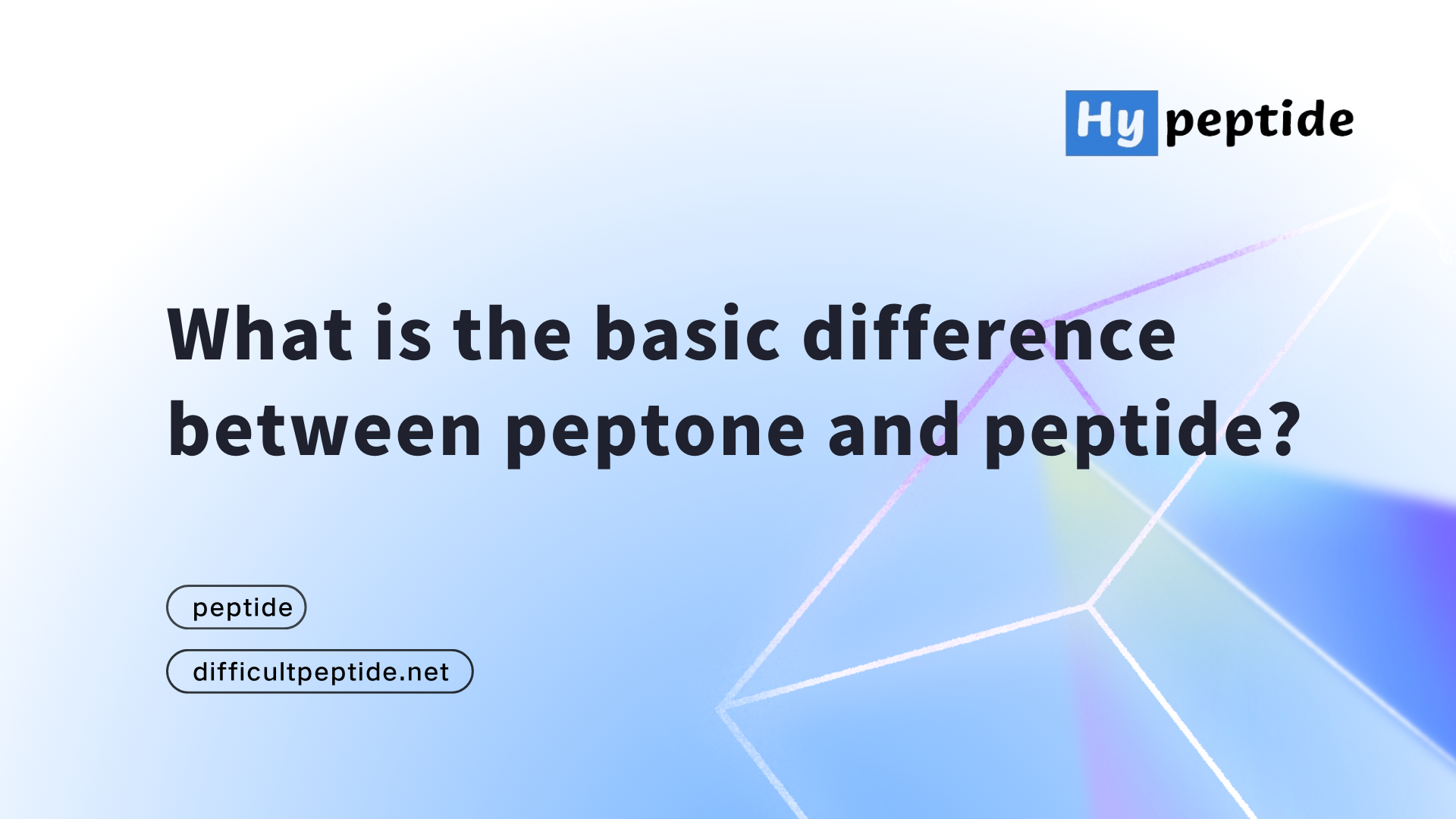
What is the basic difference between peptone and peptide?
Peptone and peptide are related terms but refer to different substances in the context of biochemistry and biology.
- Peptone:
- Definition: Peptone is a complex mixture of partially digested proteins or peptides that result from the enzymatic digestion of proteins.
- Source: Peptones are often derived from animal or plant tissues, as well as casein (milk protein) or soybean meal.
- Composition: Peptones consist of a mixture of peptides, amino acids, and other small molecules resulting from the breakdown of proteins.
- Use: Peptones are commonly used in microbiology and biotechnology as nutrient supplements in culture media to support the growth of microorganisms.
- Peptide:
- Definition: A peptide is a short chain of amino acids linked together by peptide bonds. Peptides are the building blocks of proteins.
- Composition: Peptides can vary in length, ranging from just a few amino acids to around 50 amino acids. When the chain becomes longer, it is typically referred to as a protein.
- Function: Peptides play crucial roles in biological processes. Some act as signaling molecules (such as hormones and neuropeptides), while others have structural roles in tissues.
- Examples: Examples of peptides include dipeptides (two amino acids), tripeptides (three amino acids), and oligopeptides (short chains of amino acids).
In summary, peptone is a complex mixture of partially digested proteins or peptides, while a peptide specifically refers to a short chain of amino acids linked by peptide bonds. Peptones are often used as nutrient sources, while peptides are fundamental components of proteins and have various biological functions.
Leave a Reply